

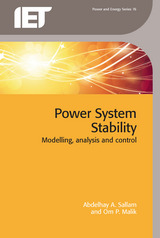
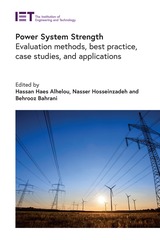
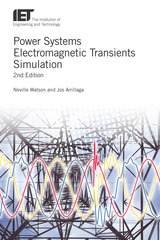


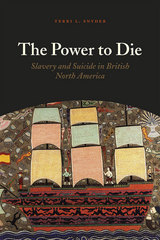
In The Power to Die, Terri L. Snyder excavates the history of slave suicide, returning it to its central place in early American history. How did people—traders, plantation owners, and, most importantly, enslaved men and women themselves—view and understand these deaths, and how did they affect understandings of the institution of slavery then and now? Snyder draws on ships’ logs, surgeons' journals, judicial and legislative records, newspaper accounts, abolitionist propaganda and slave narratives, and many other sources to build a grim picture of slavery’s toll and detail the ways in which suicide exposed the contradictions of slavery, serving as a powerful indictment that resonated throughout the Anglo-Atlantic world and continues to speak to historians today.

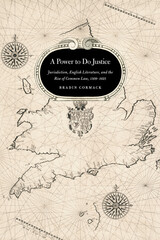
A Power to Do Justice shows how Renaissance writers engaged the practical and conceptual dynamics of jurisdiction, both as a subject for critical investigation and as a frame for articulating literature’s sense of itself. Reassessing the relation between English literature and law from More to Shakespeare, Cormack argues that where literary texts attend to jurisdiction, they dramatize how boundaries and limits are the very precondition of law’s power, even as they clarify the forms of intensification that make literary space a reality.
Tracking cultural responses to Renaissance jurisdictional thinking and legal centralization, A Power to Do Justice makes theoretical, literary-historical, and methodological contributions that set a new standard for law and the humanities and for the cultural history of early modern law and literature.

Chosen as a Choice Magazine's Outstanding Academic Book for 1999.
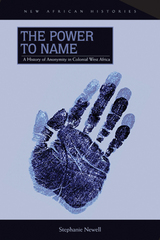
Between the 1880s and the 1940s, the region known as British West Africa became a dynamic zone of literary creativity and textual experimentation. African-owned newspapers offered local writers numerous opportunities to contribute material for publication, and editors repeatedly defined the press as a vehicle to host public debates rather than simply as an organ to disseminate news or editorial ideology. Literate locals responded with great zeal, and in increasing numbers as the twentieth century progressed, they sent in letters, articles, fiction, and poetry for publication in English- and African-language newspapers.
The Power to Name offers a rich cultural history of this phenomenon, examining the wide array of anonymous and pseudonymous writing practices to be found in African-owned newspapers between the 1880s and the 1940s, and the rise of celebrity journalism in the period of anticolonial nationalism. Stephanie Newell has produced an account of colonial West Africa that skillfully shows the ways in which colonized subjects used pseudonyms and anonymity to alter and play with colonial power and constructions of African identity.
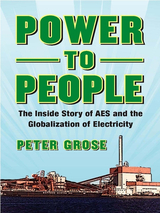
When Roger Sant arrived in Washington, D.C., in 1974, industry and government were focused on securing ever more oil, gas, coal, and nuclear energy, not on efficiency. Sant, who left a teaching position at Stanford’s business school to become assistant administrator of the Federal Energy Administration, was committed to changing the focus. With his colleague Dennis Bakke and a handful of investors, Sant founded AES, an upstart energy service company that would ultimately help transform the industry. The company was built on Sant and Bakke’s ideals: a healthy work environment, a healthy natural environment, and efficient electricity generation and delivery at an affordable price. AES seized the opportunities created by deregulation of the electricity industry, breaking free of an energy infrastructure dating back to Thomas Edison’s day. While Enron and many others stumbled, AES proved itself able to survive and often to thrive. Rapid growth would become the company’s greatest challenge, yet through exhilarating highs and disappointing lows, AES has maintained its founders’ original vision of electricity generation that sustains workers, consumers, and the environment.
Power to People is the story of electricity privatization, expanding global markets, and the transformation of an industry. It is also proof of the electrifying combination of innovation and good citizenship.
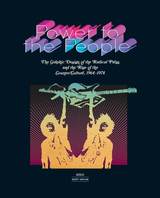
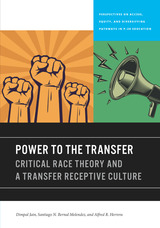
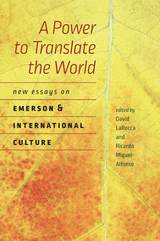

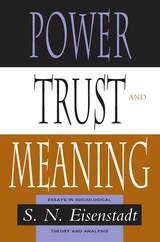
Framed by a new introduction and an extensive epilogue, which are themselves important statements about processes of institutional formations and cultural creativity, the essays trace the major developments of contemporary sociological theory and analysis. Examining themes of trust and solidarity among immigrants, youth groups, and generations, and in friendships, kinships, and patron-client relationships, Eisenstadt explores larger questions of social structure and agency, conflict and change, and the reconstitution of the social order. He looks also at political and religious systems, paying particular attention to great historical empires and the major civilizations.
United by what they reveal about three major dimensions of social life—power, trust, and meaning—these essays offer a vision of culture as both a preserving and a transforming aspect of social life, thus providing a new perspective on the relations between culture and social structure.
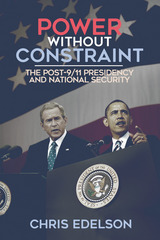
In a thorough comparison of the Bush and Obama administrations’ national security policies, Chris Edelson demonstrates that President Obama and his officials have used softer rhetoric and toned-down legal arguments, but in key areas—military action, surveillance, and state secrets—they have simply found new ways to assert power without meaningful constitutional or statutory constraints.
Edelson contends that this legacy of the two immediately post-9/11 presidencies raises crucial questions for future presidents, Congress, the courts, and American citizens. Where is the political will to restore a balance of powers among branches of government and adherence to the rule of law? What are the limits of authority regarding presidential national security power? Have national security concerns created a permanent shift to unconstrained presidential power?
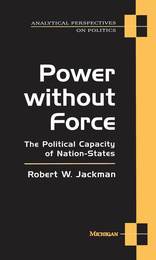
Decolonization after World War II led to a significant global increase in the number of states. Each new nation was born with high expectations. But these hopes were soon eroded by the ineffectiveness and capriciousness of many of the new regimes. In many states military juntas have become the order of the day, and even where juntas have not taken power, political differences have repeatedly degenerated into violent exchanges that do not readily lend themselves to political settlement. Not only the new states have suffered from these problems; indeed, political solutions to conflict have become depressingly conspicuous by their absence.
Against this background, the last decade has seen a resurgence of interest in evaluating the political capacity or strength of modern nation-states. In Power without Force, Robert Jackman argues that political capacity has two broad components: organizational age and legitimacy. Thus, it is essential to focus both on institutions conceived in organizational terms and the amount of compliance and consent that leaders are able to engender. The emphasis on each reflects the view that political life centers on the exercise of power, and that, unlike physical force, power is intrinsically relational. Although all states have he capability to inflict physical sanctions, their ability to exercise power is the key element of their political capacity.
Drawing on a wide range of studies from political science, sociology, and political economy, Power without Force redirects attention to the central issues of political capacity. By stressing that effective conflict resolution must be addressed in political terms, this volume underscores perennial issues of governance and politics that form the heart of comparative politics and political sociology.
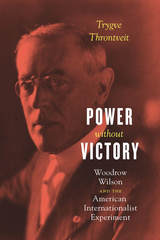
In Power without Victory, Trygve Throntveit argues that there is more to the story of Wilson than these sad truths. Throntveit makes the case that Wilson was not a “Wilsonian,” as that term has come to be understood, but a principled pragmatist in the tradition of William James. He did not seek to stamp American-style democracy on other peoples, but to enable the gradual development of a genuinely global system of governance that would maintain justice and facilitate peaceful change—a goal that, contrary to historical tradition, the American people embraced. In this brilliant intellectual, cultural, and political history, Throntveit gives us a new vision of Wilson, as well as a model of how to think about the complex relationship between the world of ideas and the worlds of policy and diplomacy.

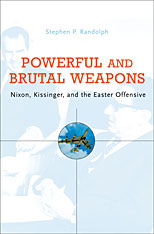
As America confronts an unpredictable war in Iraq, Stephen Randolph returns to an earlier conflict that severely tested our civilian and military leaders. In 1972, America sought to withdraw from Vietnam with its credibility intact. As diplomatic negotiations were pursued in Paris, President Richard Nixon and National Security Advisor Henry Kissinger hoped that gains on the battlefield would strengthen their position at the negotiating table--working against the relentless deadline of a presidential election year.
In retaliation for a major North Vietnamese offensive breaking over the Easter holidays, the President launched the all-out air campaign known as Linebacker--overriding his Secretary of Defense and clashing with the theater commander in whom he had lost all confidence. He intended to destroy the enemy with the full force of America's "powerful and brutal weapons" and thus shape the endgame of the war. Randolph's narrative, based not only on the Nixon White House tapes and newly declassified materials from the National Security Council, the Pentagon, and the White House but also on never before used North Vietnamese sources, re-creates how North Vietnam planned and fought this battle from Hanoi and how the U.S. planned and fought it from Washington.
Randolph's intimate chronicle of Nixon's performance as commander-in-chief gains us unprecedented access to how strategic assessments were made, transmitted through the field of command, and played out in combat and at the negotiating table. It is a compelling story about America's military decision-making in conflicts with nontraditional belligerents that speaks provocatively to our own time.
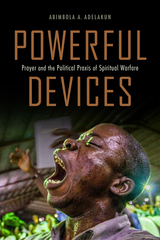

Powerful Frequencies details the central role that radio technology and broadcasting played in the formation of colonial Portuguese Southern Africa and the postcolonial nation-state, Angola. In Intonations, Marissa J. Moorman examined the crucial relationship between music and Angolan independence during the 1960s and ’70s. Now, Moorman turns to the history of Angolan radio as an instrument for Portuguese settlers, the colonial state, African nationalists, and the postcolonial state. They all used radio to project power, while the latter employed it to challenge empire.
From the 1930s introduction of radio by settlers, to the clandestine broadcasts of guerrilla groups, to radio’s use in the Portuguese counterinsurgency strategy during the Cold War era and in developing the independent state’s national and regional voice, Powerful Frequencies narrates a history of canny listeners, committed professionals, and dissenting political movements. All of these employed radio’s peculiarities—invisibility, ephemerality, and its material effects—to transgress social, political, “physical,” and intellectual borders. Powerful Frequencies follows radio’s traces in film, literature, and music to illustrate how the technology’s sonic power—even when it made some listeners anxious and frightened—created and transformed the late colonial and independent Angolan soundscape.


The realignment of the Chinese social order that took place over the course of the Sung dynasty set the pattern for Chinese society throughout most of the later imperial era. This study examines that realignment from the perspective of specific Sung families, using data on two groups of Sung elites—the grand councilors who led the bureaucracy and locally prominent gentlemen in Wu-chou (in modern Chekiang).
By analyzing kinship relationships, Beverly Bossler demonstrates the importance of family relations to the establishment and perpetuation of social status locally and in the capital. She shows how social position was measured and acted upon, how status shaped personal relationships (and vice versa), and how both status and personal relationships conditioned—and were conditioned by—political success. Finally, in a contribution to the ongoing discussion of localism in the Sung, Bossler details the varied networks that connected the local elite to the capital and elsewhere.
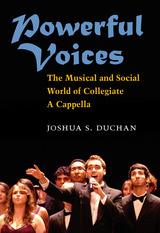
Collegiate a cappella, part of a long tradition of unaccompanied singing, is known to date back on American college campuses to at least the colonial era. Considered in the context of college glee clubs, barbershop quartets, early-twentieth-century vocal pop groups, doo-wop groups, and contemporary a cappella manifestations in pop music, collegiate a cappella is an extension of a very old tradition of close harmony singing---one that includes but also goes beyond the founding of the Yale Whiffenpoofs. Yet despite this important history, collegiate a cappella has until now never been the subject of scholarly examination.
In Powerful Voices: The Musical and Social World of Collegiate A Cappella, Joshua S. Duchan offers the first thorough accounting of the music's history and reveals how the critical issues of sociability, gender, performance, and technology affect its music and experience. Just as importantly, Duchan provides a vital contribution to music scholarship more broadly, in several important ways: by expanding the small body of literature on choruses and amateur music; by addressing musical and social processes in a field where the vast majority of scholarship focuses on individuals and their products; and by highlighting a musical context long neglected by musicologists---the college campus. Ultimately, Powerful Voices is a window on a world of amateur music that has begun to expand its reach internationally, carrying this uniquely American musical form to new global audiences, while playing an important role in the social, cultural, and musical education of countless singers over the last century.
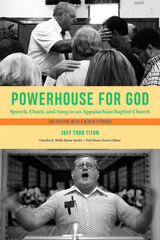
In this second edition of Powerhouse for God, Titon revisits The Fellowship Independent Baptist Church nearly four decades later. Brother John Sherfey, the charismatic preacher steeped in Appalachian tradition has passed away and left his congregation to his son, Donnie, to lead. While Appalachian Virginia has changed markedly over the decades, the town of Stanley and the Fellowship Church have not. Titon relates this rarity in his new Afterword: a church founded on Biblical literalism and untouched by modern progressivism in an area of Appalachia that has seen an evolution in population, industry, and immigration.
Titon’s unforgettable study of folklife, musicology, and Appalachian religion is available for a new generation of scholars to build upon.

Exemplary of this new approach were Western responses to ethnic cleansing in the former Yugoslavia and genocide in Rwanda. In order to avoid costly interventions, U.S. and European leaders traced these crimes to ancient tribal enmities and professed that the role of the international community should be limited to a humanitarian, impartial, and conciliatory engagement with all the warring parties. They thus managed to appear righteous but powerless, at least until NATO’s intervention in Kosovo. Faced with this doctrine, both the liberal and radical wings of the Western Left found themselves in an uneasy position. Liberals, while lured by their leaders’ humanitarianism were nonetheless disturbed by the dismal results of the policies carried out in the name of the international community. Conversely, anti-imperialist militants were quick to mock the hypocrisy of their governments’ helpless indignation, yet certainly not prepared to demand that Western powers resort to force.
Are we still in this “age of the international community”? Feher shows that with NATO’s intervention in Kosovo, both liberal and radical activists suddenly found their mark: the former welcomed the newfound resolve of their governments, while the latter condemned it as the return of the imperialist “new world order.” For Western leaders, however, the war against Serbia proved an accident rather than a turning point. Indeed, less than a year later, their indifference to the destruction of Chechnya by Russian troops suggested that the discursive strategy exposed in Powerless by Design might remain with us for quite some time.
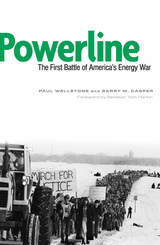

1941 is a year of drama and spectacle for Americans. Joe DiMaggio’s record-breaking hitting streak enlivens the summer, and winter begins with the shock and horror of the Japanese attack on Pearl Harbor. The news from Europe is bleak, especially for the Jewish population. Joltin’ Joe, possessing a sweet swing and range in center, also has another gift: he can see the future. And he sees dark times ahead.
In her inventive novel The Powers, Valerie Sayers, in both realistic and fantastic chapters, transports the reader to an age filled with giants: Dorothy Day and Walker Evans appear beside DiMaggio. The problems they face, from Catholic antisemitism to the challenge of pacifism in the face of overwhelming evil, play out in very public media, among them the photography of Evans and the baseball of DiMaggio. At once magical and familiar, The Powers is a story of witness and moral responsibility that will, like Joe DiMaggio, find some unlikely fans.

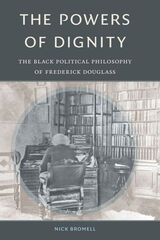
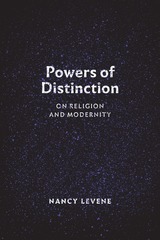
In readings from Abraham to the present, Levene recovers this richer dualism in its difference from the alternatives—other dualisms, nondualism, multiplication. From Abraham we get the biblical call to give up tribal belonging for a promised land of covenantal relation. Yet modernity, inclusive of this call, is also the principle that critiques the promise when it divides self from other, us from them.
Drawing on a long tradition of thinkers and scholars even as she breaks new ground, Levene offers here nothing less than a new way of understanding modernity as an ethical claim about our world, a philosophy of the powers of distinction to include rather than to divide.

For two and a half millennia philologists have viewed themselves as the modest heirs and curators of their textual past's most glorious periods, collecting and editing text fragments, historicizing them and adding commentary, and ultimately teaching them to contemporary readers.
Gumbrecht argues for a return to this tradition as an alternative to an often free-floating textual interpretation and to the more recent redefinition of literary studies as "cultural studies," which risks a loss of intellectual focus. Such a return to philological core exercises, however, can become more than yet another movement of academic nostalgia only if it takes into account the hidden desire that has inspired
philology since its Hellenistic beginnings: the desire to make the past present again by embodying it.
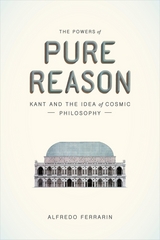
Ferrarin blows the dust off of two egregiously overlooked sections of the First Critique—the Transcendental Dialectic and the Doctrine of Method. There he discovers what he argues is the Critique’s greatest achievement: a conception of the unity of reason and an exploration of the powers it has to reach beyond itself and legislate over the world. With this in mind, Ferrarin dismantles the common vision of Kant as a philosopher writing separately on epistemology, ethics, and aesthetics and natural teleology, showing that the three Critiques are united by this underlying theme: the autonomy and teleology of reason, its power and ends. The result is a refreshing new view of Kant, and of reason itself.
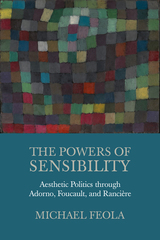
Feola provides insightful engagements with the works of Adorno, Foucault, and Rancière as well as a survey of contemporary debates on aesthetics and politics. He uses this aesthetic framework to develop a more robust account of political agency, demonstrating that politics is not reducible to the exchange of views or the building of institutions, but rather incorporates public modes of feeling, seeing, and hearing (or not-seeing and not-hearing). These sensory modes must themselves be transformed in the work of emancipatory politics.
The book explores the core question: what does the aesthetic offer that is missing from the official languages of politics, citizenship, and power? Of interest to readers in the fields of critical theory, political theory, continental philosophy, and aesthetics, The Powers of Sensibility roots itself within the classical tradition of critical theory and yet uses these resources to speak to a variety of contemporary political movements.

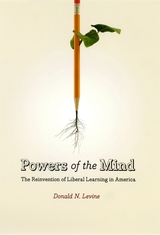
It is one thing to lament the financial pressures put on universities, quite another to face up to the poverty of resources for thinking about what universities should do when they purport to offer a liberal education. In Powers of the Mind, former University of Chicago dean Donald N. Levine enriches those resources by proposing fresh ways to think about liberal learning with ideas more suited to our times.
He does so by defining basic values of modernity and then considering curricular principles pertinent to them. The principles he favors are powers of the mind—disciplines understood as fields of study defined not by subject matter but by their embodiment of distinct intellectual capacities. To illustrate, Levine draws on his own lifetime of teaching and educational leadership, while providing a marvelous summary of exemplary educational thinkers at the University of Chicago who continue to inspire. Out of this vital tradition, Powers of the Mind constructs a paradigm for liberal arts today, inclusive of all perspectives and applicable to all settings in the modern world.

Powers of the Real analyzes the cultural politics of cinema's persuasive sensory realism in interwar Japan. Examining cultural criticism, art, news media, literature, and film, Diane Wei Lewis shows how representations of women and signifiers of femininity were used to characterize new forms of pleasure and fantasy enabled by consumer culture and technological media. Drawing on a rich variety of sources, she analyzes the role that images of women played in articulating the new expressions of identity, behavior, and affiliation produced by cinema and consumer capitalism. In the process, Lewis traces new discourses on the technological mediation of emotion to the 1923 Great Kanto Earthquake and postquake mass media boom. The earthquake transformed the Japanese film industry and lent urgency to debates surrounding cinema's ability to reach a mass audience and shape public sentiment, while the rise of consumer culture contributed to alarm over rampant materialism and "feminization."
Demonstrating how ideas about emotion and sexual difference played a crucial role in popular discourse on cinema’s reach and its sensory-affective powers, Powers of the Real offers new perspectives on media history, the commodification of intimacy and emotion, film realism, and gender politics in the “age of the mass society” in Japan.
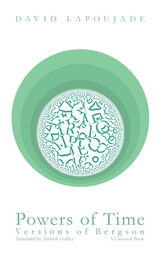
How is it that when we think of time, we hardly think of the role affect plays in granting us access to time: the sense of waiting, regret, mourning, melancholy? In Powers of Time, David Lapoujade returns to two central themes that continuously converge throughout the writings of the French philosopher Henri Bergson: durée (duration) and intuition. If duration is synonymous with memory, how are we then capable of thinking an authentic sense of the future? Does this mean that freedom is nothing more than a reprisal of our past?
Lapoujade uncovers multiple versions of Bergson: a philosopher of sympathy, a melancholic philosopher, a perspectivist Bergson, a spiritualist Bergson. Leading us beyond simplistic anthropomorphic conceptions of temporality and intuition, Lapoujade’s multiple Bergsons guide us to encounter a rapport with time, memory, and duration that places us in direct contact with the nonhuman flows and movements of the universe.
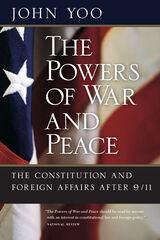
John Yoo, formerly a lawyer in the Department of Justice, here makes the case for a completely new approach to understanding what the Constitution says about foreign affairs, particularly the powers of war and peace. Looking to American history, Yoo points out that from Truman and Korea to Clinton's intervention in Kosovo, American presidents have had to act decisively on the world stage without a declaration of war. They are able to do so, Yoo argues, because the Constitution grants the president, Congress, and the courts very different powers, requiring them to negotiate the country's foreign policy. Yoo roots his controversial analysis in a brilliant reconstruction of the original understanding of the foreign affairs power and supplements it with arguments based on constitutional text, structure, and history.
Accessibly blending historical arguments with current policy debates, The Powers of War and Peace will no doubt be hotly debated. And while the questions it addresses are as old and fundamental as the Constitution itself, America's response to the September 11 attacks has renewed them with even greater force and urgency.
“Yoo’s theory promotes frank discussion of the national interest and makes it harder for politicians to parade policy conflicts as constitutional crises. Most important, Yoo’s approach offers a way to renew our political system’s democratic vigor.”—David B. Rivkin Jr. and Carlos Ramos-Mrosovsky, National Review

Beginning with FDR's masterful use of radio to establish the sense of a personal, benevolently paternal relationship with the American people and culminating in the discovery and coverage of the Watergate break-in, Halberstam tracks the firm establishment of the media as a potent means of shaping both public opinion and public policy. He tells the story through vivid, intimate portraits of the men, women, and politics behind four key media organizations: CBS and its board chairman William S. Paley; Time magazine and its cofounder Henry Luce; the Washington Post and successive publishers Philip Graham and his wife, Katherine; and the Los Angeles Times and publishers Norman Chandler and his son, Otis.
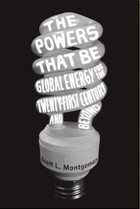
Thirty years ago, our global energy landscape did not look remarkably different from what it does today. Three or four decades from now, it certainly will: dwindling oil reserves will clash with skyrocketing demand, as developing nations around the world lead their citizens into the modern energy economy, and all the while, the grave threat of catastrophic climate change looms ever larger. Energy worries are at an all-time high—just how will we power our future?
With The Powers That Be, Scott L. Montgomery cuts through the hype, alarmism, and confusion to give us a straightforward, informed account of where we are now, and a map of where we’re going. Starting with the inescapable fact of our current dependence on fossil fuels—which supply 80% of all our energy needs today—Montgomery clearly and carefully lays out the many alternative energy options available, ranging from the familiar, like water and solar, to such nascent but promising sources as hydrogen and geothermal power. What is crucial, Montgomery explains, is understanding that our future will depend not on some single, wondrous breakthrough; instead, we should focus on developing a more diverse, adaptable energy future, one that draws on a variety of sources—and is thus less vulnerable to disruption or failure.
An admirably evenhanded and always realistic guide, Montgomery enables readers to understand the implications of energy funding, research, and politics at a global scale. At the same time, he doesn’t neglect the ultimate connection between those decisions and the average citizen flipping a light switch or sliding behind the wheel of a car, making The Powers That Be indispensible for our ever-more energy conscious age.
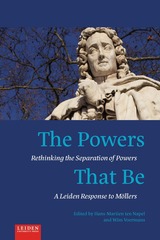
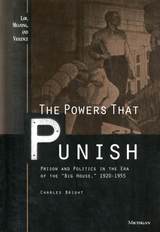
In a pathbreaking study of a major state prison, Michigan's Jackson State Penitentiary during the middle years of this century, Charles Bright addresses several aspects of the history and theory of punishment. The study is an institutional history of an American penitentiary, concerned with how a carceral regime was organized and maintained, how prisoners were treated and involved in the creation of a regime of order and how penal practices were explained and defended in public. In addition, it is a meditation upon punishment in modern society and a critical engagement with prevailing theories of punishment coming out of liberal, Marxist and post structuralist traditions. Deploying theory critically in a historic narrative, it applies new, relational theories of power to political institutions and practices. Finally, in studying the history of the Jackson prison, Bright provides a rich account, full of villains and a few heroes, of state politics in Michigan during a period of rapid transition between the 1920s to the 1950s.
The book will be of direct relevance to criminologists and scholars of punishment, and to historians concerned with the history of punishment and prisons in the United States. It will also be useful to political scientists and historians concerned with exploring new approaches to the study of power and with the transformation of state politics in the 1930s and 1940s. Finally Bright tells a story which will fascinate students of modern Michigan history.
Charles Bright is a historian and Lecturer at the Residential College of the University of Michigan.

Power-Sharing seeks to explore the unintended consequences of power-sharing for the communities themselves, their individual members, and for others in society. More specifically, it is distinctive in questioning explicitly whether power sharing: perpetuates inter-communal conflict by institutionalising difference at the political level; inhibits conflict resolution by encouraging extremism; stifles internal diversity; and fails to leave sufficient space for individual autonomy.
This book not only provides a theoretical exploration and critique of these questions, but comprehensively examines specific test cases where power-sharing institutions have been established, including in Northern Ireland, Belgium, Bosnia-Herzegovina, Macedonia and Lebanon. It also explores such issues as the role of political leaders, human rights
instruments, the position of women, and the prospects for reconciliation within such societies.
Furthermore it provides a detailed set of policy recommendations to meet the challenges of transition in deeply-divided societies.


Marcoux studies the material remains of daily life in order to identify the strategies that households enacted while adapting to the social, political, and economic disruptions associated with European contact. The author focuses on households as the basic units of analysis because these represent the most fundamental and pervasive unit of economic and social production in the archaeological record. His investigations show how the daily lives of Cherokee households changed dramatically as they coped with the shifting social, political, and economic currents of the times. He demonstrates that the community excavated at the Townsend site was formed by immigrant households who came together from geographically disparate and ethnically distinct Cherokee settlements as a way to ameliorate population losses. He also explores changes in community and household patterning, showing how the spatial organization of the Townsend community became less formal and how households became more transient compared to communities predating contact with Europeans. From this evidence, Marcoux concludes that these changes reflect a broader strategic shift to a more flexible lifestyle that would have aided Cherokee households in negotiating the social, political, and economic uncertainty of the period.

D'Adesky takes us through a fast-changing East Village: squatter protests and civil disobedience lead to all-night drag and art-dance parties, the fun-loving Lesbian Avengers organize dyke marches, and the protest group ACT UP stages public funerals. Traveling as a journalist to Paris, an insomniac d'Adesky trolls the Seine, encountering waves of exiles fleeing violence in the Balkans, Haiti, and Rwanda. As the last of the French Nazis stand trial and the new National Front rises in the polls, d'Adesky digs into her aristocratic family's roots in Vichy France and colonial Haiti. This is a testament with a message for every generation: grab at life and love, connect with others, fight for justice, keep despair at bay, and remember.
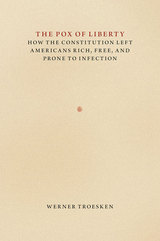
Werner Troesken looks at the history of the United States with a focus on three diseases—smallpox, typhoid fever, and yellow fever—to show how constitutional rules and provisions that promoted individual liberty and economic prosperity also influenced, for good and for bad, the country’s ability to eradicate infectious disease. Ranging from federalism under the Commerce Clause to the Contract Clause and the Fourteenth Amendment, Troesken argues persuasively that many institutions intended to promote desirable political or economic outcomes also hindered the provision of public health. We are unhealthy, in other words, at least in part because our political and legal institutions function well. Offering a compelling new perspective, The Pox of Liberty challenges many traditional claims that infectious diseases are inexorable forces in human history, beyond the control of individual actors or the state, revealing them instead to be the result of public and private choices.
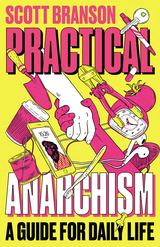
You may not realise it, but you are probably already practicing anarchism in your daily life. From relationships to school, work, art, even the way you organise your time, anarchism can help you find fulfilment, empathy and liberation in the everyday.
From the small questions such as 'Why should I steal?' to the big ones like 'how do I love?', Scott Branson shows that anarchism isn’t only something we do when we react to the news, protest or even riot. With practical examples enriched by history and theory, these tips will empower you to break free from the consumerist trappings of our world.
Anarchism is not just for white men, but for everyone. In reading this book, you can detach from patriarchal masculinity, norms of family, gender, sexuality, racialisation, individual responsibility and the destruction of our planet, and replace them with ideas of sustainable living, with ties of mutual aid, and the horizon of collective liberation.
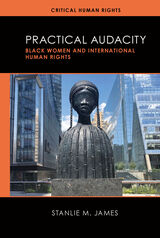
Stanlie M. James weaves narratives by and about these women throughout the history of the field, illustrating how they conceptualize, develop, and implement human rights. By centering the courage and innovative interventions of capable and visionary Black women, she places them rightfully alongside such figures as Thurgood Marshall and Charles Hamilton Houston. This volume fundamentally shifts the frame through which human rights struggles are understood, illuminating how those who witness and experience oppression have made some of the biggest contributions to building a better world.

Practical Botany for Gardeners provides an elegant and accessible introduction to the world of botany. It presents the essentials that every gardener needs to know, connecting explanations of scientific facts with useful gardening tips. Flip to the roots section and you’ll not only learn how different types of roots support a plant but also find that adding fungi to soil aids growth. The pruning section both defines “lateral buds” and explains how far back on a shoot to cut in order to propagate them.
The book breaks down key areas and terminology with easy-to-navigate chapters arranged by theme, such as plant types, plant parts, inner workings, and external factors. “Great Botanists” and “Botany in Action” boxes delve deeper into the fascinating byways of plant science. This multifaceted book also includes two hundred botanical illustrations and basic diagrams that hearken to the classic roots of botany.
Part handbook, part reference, Practical Botany for Gardeners is a beautifully captivating read. It’s a must for garden lovers and backyard botanists who want to grow and nurture their own plant knowledge.
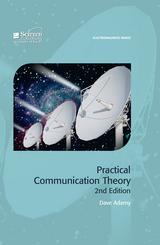
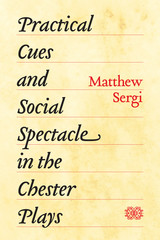
Carefully combing through the plays, Sergi seeks out cues in the dialogues that reveal information about the original staging, design, and acting. These “practical cues,” as he calls them, have gone largely unnoticed by drama scholars, who have focused on the ideology and historical contexts of these plays, rather than the methods, mechanics, and structures of the actual performances. Drawing on his experience as an actor and director, he combines close readings of these texts with fragments of records, revealing a new way to understand how the Chester plays brought biblical narratives to spectators in the noisy streets. For Sergi, plays that once appeared only as dry religious dramas come to life as raucous participatory spectacles filled with humor, camp, and devotion.

For nearly fifteen years Practical Decision Making in Health Care Ethics has offered scholars and students a highly accessible and teachable alternative to the dominant principle-based theories in the field. Devettere’s approach is not based on an ethics of abstract obligations and duties, but, following Aristotle, on how to live a fulfilled and happy life—in short, an ethics of personal well-being grounded in prudence, the virtue of ethical decision making.
This third edition is revised and updated and includes discussions of several landmark cases, including the tragic stories of Terri Schiavo and Jesse Gelsinger (the first death caused by genetic research). Devettere addresses new topics such as partial-birth abortion law, embryonic stem cell research, infant euthanasia in The Netherlands, recent Vatican statements on feeding tubes, organ donation after cardiac death, new developments in artificial hearts, clinical trials developed by pharmaceutical companies to market new drugs, ghostwritten scientific articles published in major medical journals, and controversial HIV/AIDS research in Africa. This edition also includes a new chapter on the latest social and political issues in American health care.
Devettere’s engaging text relies on commonsense moral concepts and avoids academic jargon. It includes a glossary of legal, medical, and ethical terms; an index of cases; and thoroughly updated bibliographic essays at the end of each chapter that offer resources for further reading. It is a true classic, brilliantly conceived and executed, and is now even more valuable to undergraduates and graduate students, medical students, health care professionals, hospital ethics committees and institutional review boards, and general readers interested in philosophy, medicine, and the rapidly changing field of health care ethics.
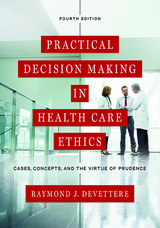
For more than twenty years Practical Decision Making in Health Care Ethics has offered scholars and students a highly accessible and teachable alternative to the dominant principle-based theories in the field. Raymond J. Devettere's approach is not based on an ethics of abstract obligations and duties but, following Aristotle, on how to live a fulfilled and happy life—in short, an ethics of personal well-being grounded in prudence, the virtue of ethical decision making.
New sections added in this revised fourth edition include sequencing whole genomes, even those of newborns; the new developments in genetic testing now provided by online commercial companies such as 23andMe; the genetic testing of fetuses by capturing their DNA circulating in the pregnant woman's blood; the Stanford Prison experiment and its relevance to the abuses at the Abu Graib prison; recent breakthroughs in the diagnosis of consciousness disorders such as PVS; the ongoing controversy generated by the NIH study of premature babies at many NICUs throughout the county, a study known as SUPPORT that the OHRP (Office of Human Research Protections, an office within the department of HHS) deemed unethical.
Devettere updates most chapters. New cases include Marlise Munoz (dead pregnant woman's body kept on life support by a Texas hospital), Jahi McMath (teenager pronounced dead in California but treated as alive in New Jersey), Margot Bentley (nursing home feeding a woman dying of end stage Alzheimer’s despite her advance directive that said no nourishment or liquids if she was dying with dementia), Brittany Maynard (dying 29-year-old California woman who moved to Oregon to commit suicide with a physician's help), and Samantha Burton (woman with two children who suffered rupture of membranes at 25 weeks and whose physician obtained a court order to keep her at the hospital to make sure she stayed on bed rest). Thoughtfully updated and renewed for a new generation of readers, this classic textbook will be required reading for students and scholars of philosophy and medical ethics.
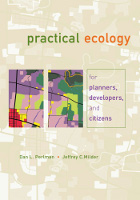
Practical Ecology for Planners, Developers, and Citizens introduces and explains key ecological concepts for planners, landscape architects, developers, and others involved in planning and building human habitats. The book is tailored to meet the needs of busy land use professionals and citizens seeking a concise yet thorough overview of ecology and its applications. It offers clear guidelines and a wealth of information on how we can protect species and ecosystems while at the same creating healthy, sustainable human communities.
Throughout the book, the authors make ecological concepts accessible to readers with little or no scientific background. They present key ideas and information in simple and pragmatic terms, and provide numerous graphics to help explain important concepts. They also offer exercises for the reader to practice ecologically-based planning and design, along with a list of resources for practical information on ecology and conservation.
Practical Ecology for Planners, Developers, and Citizens will raise the level of ecological understanding among land use professionals and citizens, and is an invaluable new resource for anyone concerned with human land use and its environmental impacts.

However exciting new technologies and educational tools may seem, they can become solely for entertainment unless their design, use, and evaluation are guided by principles of education and language development. Task-based Language Teaching (TBLT) provides an excellent approach for teachers who want to realize the potential of technology to engage learners and improve language learning inside and outside the classroom.
This practical guide shows teachers how to successfully incorporate technology into TBLT in the classroom and to develop technology-mediated materials. Whether the goal is to conduct a needs analysis, to develop classroom or homework materials, or to implement a new approach of student assessment, A Practical Guide to Integrating Technology into Task-Based Language Teaching will be a welcome resource for language teachers at all levels.
Designed for use in the classroom as well as for independent study, the book includes reflective questions, activities, and further reading at the end of each chapter. Examples of units in Chinese, Spanish, ESL, and the hospitality industry are provided.
Georgetown Digital Shorts—longer than an article, shorter than a book—deliver timely works of peer-reviewed scholarship for a fast-paced world. They present new ideas and original content that are easily digestable for students, scholars, and general readers.
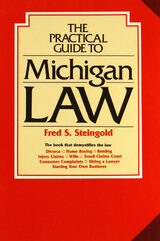

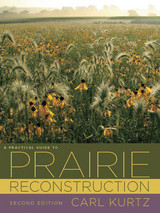
Kurtz has completely revised every chapter of the first edition, from site selection and harvest to soil preparation, seeding, postplanting mowing, burning, and growth and development. He has written new chapters on establishing prairie in old pastureland and on the judicious use of herbicides, including a table that shows particular problem species, the types of herbicides that are most effective at controlling them, and the timing and method of treatment. New photographs illustrate species and steps, and Kurtz has expanded the question-and-answer section and updated the references and the section on midwestern seed sources and services.
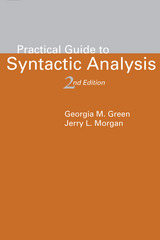



In recent years, issues of infection prevention and control, patient safety, and quality-of-care have become increasingly prominent in healthcare facilities. Practical Healthcare Epidemiology takes a practical, hands-on approach to these issues, addressing all aspects of infection surveillance and prevention in clear, straightforward terms. This fully revised third edition brings together the expertise of more than fifty leaders in healthcare epidemiology who provide clear, sound guidance on infection prevention and control for the full range of patients in all types of healthcare facilities, including those in settings with limited resources. A powerful resource for practitioners in any branch of medicine or public health who are involved in infection prevention and control, whether they are experienced in healthcare epidemiology or new to the field.
“A handy desk reference and an up-to-date primer for trainees and experts alike” —The Journal of the American Medical Association
“An essential for anyone in the field.”—Thomas R. Talbot, Chief Hospital Epidemiologist, Vanderbilt University Medical Center

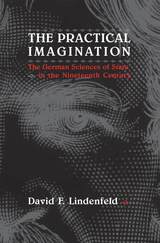
Lindenfeld argues that these sciences of state developed a technique of deliberation on practical issues such as tax policy and welfare, that serves as a model for contemporary administrations.

Practical reasoning is not just a matter of determining how to get what you want, but of working out what to want in the first place. In Practical Induction Elijah Millgram argues that experience plays a central role in this process of deciding what is or is not important or worth pursuing. He takes aim at instrumentalism, a view predominant among philosophers today, which holds that the goals of practical reasoning are basic in the sense that they are given by desires that are not themselves the product of practical reasoning. The view Millgram defends is "practical induction," a method of reasoning from experience similar to theoretical induction.
What are the practical observations that teach us what to want? Millgram suggests they are pleasant and unpleasant experiences on the basis of which we form practical judgments about particular cases. By generalizing from these judgments--that is, by practical induction--we rationally arrive at our views about what matters. Learning new priorities from experience is necessary if we are to function in a world of ever-changing circumstances. And we need to be able to learn both from our own and from others' experience. It is this, Millgram contends, that explains the cognitive importance of both our capacity for pain and pleasure and our capacity for love. Pleasure's role in cognition is not that of a goal but that of a guide. Love's role in cognition derives from its relation to our trusting the testimony of others about what does and does not matter and about what merits our desire.
Itself a pleasure to read, this book is full of inventive arguments and conveys Millgram's bold thesis with elegance and force. It will alter the direction of current debates on practical reasoning.
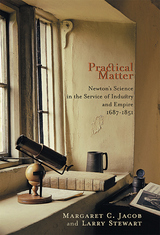
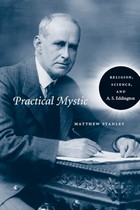
Eddington was a world-class scientist who not only maintained his religious belief throughout his scientific career but also defended the interrelation of science and religion while drawing inspiration from both for his practices. For instance, at a time when a strict adherence to deductive principles of physics had proved fruitless for understanding the nature of stars, insights from Quaker mysticism led Eddington to argue that an outlook less concerned with certainty and more concerned with further exploration was necessary to overcome the obstacles of incomplete and uncertain knowledge.
By examining this intersection between liberal religion and astrophysics, Practical Mystic questions many common assumptions about the relationship between science and spirituality. Matthew Stanley’s analysis of Eddington’s personal convictions also reveals much about the practice, production, and dissemination of scientific knowledge at the beginning of the twentieth century.
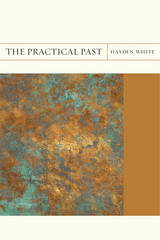
Hayden White borrows the title for The Practical Past from philosopher Michael Oakeshott, who used the term to describe the accessible material and literary-artistic artifacts that individuals and institutions draw on for guidance in quotidian affairs. The Practical Past, then, forms both a summa of White’s work to be drawn upon and a new direction in his thinking about the writing of history.
White’s monumental Metahistory: The Historical Imagination in Nineteenth-Century Europe (1973) challenged many of the commonplaces of professional historical writing and wider assumptions about the ontology of history itself. It formed the basis of his argument that we can never recover “what actually happened”in the past and cannot really access even material culture in context. Forty years on, White sees “professional history" as falling prey to narrow specialization, and he calls upon historians to take seriously the practical past of explicitly “artistic” works, such as novels and dramas, and literary theorists likewise to engage historians.





In this original study, Jonathan Jacobs provides a new account of ethical realism that combines both abstract meta-ethical issues defining the debate on realism and concrete topics in moral psychology. Jacobs argues that practical reasoners can both understand the ethical significance of facts and be motivated to act by that understanding. In that sense, objective considerations are prescriptive. In his discussion of the theory of practical realism, he extends themes and claims originating in Aristotelian ethics while engaging with the most important contemporary literature.
Arguing that desire and reason can agree on what is good, Jacobs explains how good action is naturally pleasing to the agent. In acting well, the agent affirms certain values and enjoys doing so. Jacobs grounds his explanation of ethical value in detailed explorations of the moral psychology of self-love, friendship, and respect. Students and scholars of philosophy will be intrigued by this integrated account of meta-ethics, practical reason, and moral psychology.

Practical Reason, Aristotle, and Weakness of the Will was first published in 1984. Minnesota Archive Editions uses digital technology to make long-unavailable books once again accessible, and are published unaltered from the original University of Minnesota Press editions.
One of the central problems in recent moral philosophy is the apparent tension between the "practical" or "action-guiding" side of moral judgments and their objectivity. That tension would not exist if practical reason existed (if reason played a substantial role in producing motivation) and if recognition of obligation were one of the areas in which practical reason operated. In Practical Reason, Aristotle, and the Weakness of the Will,Norman Dahl argies that, despite widespread opinion to the contrary, Aristotle held a position on practical reason that both provides an objective basis for ethics and satisfies an important criterion of adequacy—that it acknowledges genuine cases of weakness of the will. In arguing for this, Dahl distinguishes Aristotle's position from that of David Hume, who denied the existence of practical reason. An important part of his argument is an account of the role that Aristotle allowed the faculty nous to play in the acquisition of general ends. Relying both on this argument and on an examination of passages from Aristotle's ethics and psychology, Dahl argues that Aristotle recognized that a genuine conflict of motives can occur in weakness of the will. This provides him with the basis for an interpretation that finds Aristotle acknowledging genuine cases of weakness of the will.
Dahl's arguments have both a philosophical and a historical point. He argues that Aristotle's position on practical reason deserves to be taken seriously, a conclusion he reinforces by comparing that position with more recent attempts, by Kant, Nagel, and Rawls, to base ethics on practical reason.
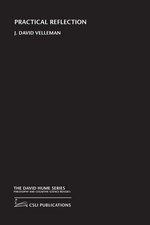


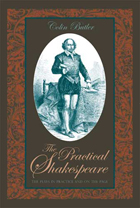
A comprehensive treatment of Shakespeare’s plays, The Practical Shakespeare: The Plays in Practice and on the Page illuminates for a general audience how and why the plays work so well.
Noting in detail the practical and physical limitations the Bard faced as he worked out the logistics of his plays, Colin Butler demonstrates how Shakespeare incorporated those limitations and turned them to his advantage: his management of entrances and exits; his characterization techniques; his handling of scenes off-stage; his control of audience responses; his organization of major scenes; and his use of prologues and choruses. A different aspect of the plays is covered in each chapter.
Butler draws most of his examples from mainstream plays, such as Macbeth, Othello, and Much Ado about Nothing. He brings special focus to A Midsummer Night’s Dream, which is treated as one of Shakespeare’s most important plays. Butler supports his major points with quotations, so readers can understand an issue even if they are unfamiliar with the particular play being discussed. The author also cross-references the use of dramatic devices in the plays, increasing the reader’s enjoyment and understanding of Shakespeare’s achievements.
Clear, jargon-free, easy-to-use, and comprehensive, The Practical Shakespeare looks at stagecraft and playwriting as conduits for students, teachers, and general audiences to engage with, understand, and appreciate the genius of Shakespeare.

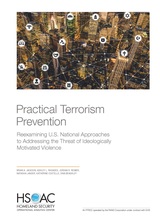


In Practically Joking, the first full-length study of the practical joke, Moira Marsh examines the value, artistry, and social significance of this ancient and pervasive form of vernacular expression.
Though they are sometimes dismissed as the lowest form of humor, practical jokes come from a lively tradition of expressive play. They can reveal both sophistication and intellectual satisfaction, with the best demanding significant skill and talent not only to conceive but also to execute. Practically Joking establishes the practical joke as a folk art form subject to critical evaluation by both practitioners and audiences, operating under the guidance of local aesthetic and ethical canons.
Marsh studies the range of genres that pranks comprise; offers a theoretical look at the reception of practical jokes based on “benign transgression”—a theory that sees humor as playful violation—and uses real-life examples of practical jokes in context to establish the form’s varieties and meanings as an independent genre, as well as its inextricable relationship with a range of folklore forms. Scholars of folklore, humor, and popular culture will find much of interest in Practically Joking.

From the day they arrive on campus, college students spend four years—or sometimes more—making decisions that shape every aspect of their academic and social lives. Whether choosing a major or a roommate, some students embrace decision-making as an opportunity for growth, while others seek to minimize challenges and avoid risk. Practice for Life builds a compelling case that a liberal arts education offers students a complex, valuable process of self-creation, one that begins in college but continues far beyond graduation.
Sifting data from a five-year study that followed over two hundred students at seven New England liberal arts colleges, the authors uncover what drives undergraduates to become engaged with their education. They found that students do not experience college as having a clear beginning and end but as a continuous series of new beginnings. They start and restart college many times, owing to the rhythms of the academic calendar, the vagaries of student housing allocation, and other factors. This dynamic has drawbacks as well as advantages. Not only students but also parents and faculty place enormous weight on some decisions, such as declaring a major, while overlooking the small but significant choices that shape students' daily experience.
For most undergraduates, deep engagement with their college education is at best episodic rather than sustained. Yet these disruptions in engagement provide students with abundant opportunities for reflection and course-correction as they learn to navigate the future uncertainties of adult life.
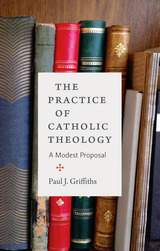

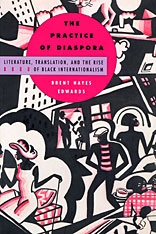
A pathbreaking work of scholarship that will reshape our understanding of the Harlem Renaissance, The Practice of Diaspora revisits black transnational culture in the 1920s and 1930s, paying particular attention to links between intellectuals in New York and their Francophone counterparts in Paris. Brent Edwards suggests that diaspora is less a historical condition than a set of practices: the claims, correspondences, and collaborations through which black intellectuals pursue a variety of international alliances.
Edwards elucidates the workings of diaspora by tracking the wealth of black transnational print culture between the world wars, exploring the connections and exchanges among New York–based publications (such as Opportunity, The Negro World, and The Crisis) and newspapers in Paris (such as Les Continents, La Voix des Nègres, and L'Etudiant noir). In reading a remarkably diverse archive--the works of writers and editors from Langston Hughes, René Maran, and Claude McKay to Paulette Nardal, Alain Locke, W. E. B. Du Bois, George Padmore, and Tiemoko Garan Kouyaté--The Practice of Diaspora takes account of the highly divergent ways of imagining race beyond the barriers of nation and language. In doing so, it reveals the importance of translation, arguing that the politics of diaspora are legible above all in efforts at negotiating difference among populations of African descent throughout the world.
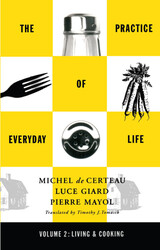
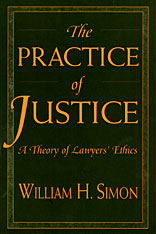
Should a lawyer keep a client's secrets even when disclosure would exculpate a person wrongly accused of a crime? To what extent should a lawyer exploit loopholes in ways that enable clients to gain unintended advantages? When can lawyers justifiably make procedural maneuvers that defeat substantive rights? The Practice of Justice is a fresh look at these and other traditional questions about the ethics of lawyering. William Simon, a legal theorist with extensive experience in practice, charges that the profession's standard approach to these questions is incoherent and implausible.
At the same time, Simon rejects the ethical approaches most frequently proposed by the profession's critics. The problem, he insists, does not lie in the profession's commitment to legal values over those of ordinary morality. Nor does it arise from the adversary system. Rather, Simon shows that the critical weakness of the standard approach is its reliance on a distinctive style of judgment--categorical, rule-bound, rigid--that is both ethically unattractive and rejected by most modern legal thought outside the realm of legal ethics. He develops an alternative approach based on a different, more contextual, style of judgment widely accepted in other areas of legal thought.
The author enlivens his argument with discussions of actual cases, including the Lincoln Savings and Loan scandal and the Leo Frank murder trial, as well as fictional accounts of lawyering, including Kafka's The Trial and the movie The Verdict.
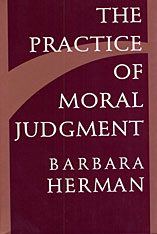
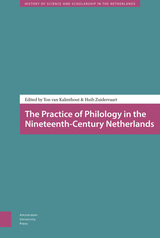
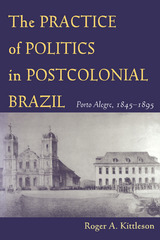
The Practice of Politics in Postcolonial Brazil traces the history of high and low politics in nineteenth-century Brazil from the vantage point of the provincial capital of Porto Alegre. In the immediate postcolonial period, new ideas about citizenship and freedom were developing, and elites struggled for control of the state as the lower classes sought inclusion in political life. In a shift from the Liberal Party to Positivist or Conservative rule during the bloody Federalist Revolt of 1893–1895, new leaders sought to bring about a more balanced structure of government where the capitalist was sympathetic to the worker, and the worker more passive toward the elite. This represented a complete change of opinions—a new regime of ideas. Termed a “scientific” approach by its proponents, the movement was based on historical process and would be brought about through civic education.
Against the backdrop of the abolition of slavery and subsequent assimilation, the rise of European immigration, and industrialization, Kittleson investigates how “the people” shaped changing political ideologies and practices, and how through local struggles and changes in elite ideology, the lower classes in Porto Alegre won limited political inclusion that was denied elsewhere.
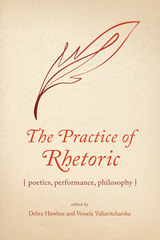
Rhetoric is the art of emphasis, in the ancient sense of bringing to light or obscuring in shadow, and it is both a practice and a theory about that practice. In recent decades, scholars of rhetoric have turned to approaches that braid together poetics, performance, and philosophy into a “practical art.” The Practice of Rhetoric: Poetics, Performance, Philosophy presents just such an account of rhetoric that presumes and incorporates theoretical approaches, offering a collection of principles assembled in the heat and trials of public practice. The essays gathered in this volume are inspired by the capacious conception of rhetoric put forth by historian of rhetoric Jeffrey Walker, who is perhaps best known for stressing rhetoric’s educational mission and its investments in both theory and practice.
The book extends that vision through the prisms of poetics, performance, and philosophy of argument. Poetics shows rhetoric’s meaning making in all its verbal possibilities and material manifestations, in contexts ranging from mouse-infested medieval fields to the threat of toxin-ridden streams in the twentieth century. Performance puts what is created into the heat of public life, tapping out the rhythms of Byzantine prose or using collage to visually depict the beliefs and convictions of Martin Luther King Jr. Philosophy of argument enacts the mutually constitutive relationship between rhetoric and dialectic, offering new insights on and contexts for old tools like stasis and disputation, while keeping the focus on usefulness and teachability.
Ranging across centuries and contexts, the essays collected here demonstrate the continued need to attend carefully to the cooperation of descriptive language and normative reality, conceptual vocabulary and material practice, public speech and moral self-shaping. This volume will rekindle long-standing conversations about the public, world-making practice of rhetoric, thereby enlivening anew its civic mission.
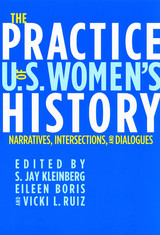
In the last several decades, U.S. women’s history has come of age. Not only have historians challenged the national narrative on the basis of their rich explorations of the personal, the social, the economic, and the political, but they have also entered into dialogues with each other over the meaning of women’s history itself.
In this collection of seventeen original essays on women’s lives from the colonial period to the present, contributors take the competing forces of race, gender, class, sexuality, religion, and region into account. Among many other examples, they examine how conceptions of gender shaped government officials’ attitudes towards East Asian immigrants; how race and gender inequality pervaded the welfare state; and how color and class shaped Mexican American women’s mobilization for civil and labor rights.

Jean-Paul Sartre’s Critique of Dialectical Reason, released to great fanfare in 1960, has since then receded in philosophical visibility. As Sartre’s reputation is now making a comeback, it is time for a reappraisal of his later work. In Practice, Power, and Forms of Life, philosopher Terry Pinkard interprets Sartre’s late work as a fundamental reworking of his earlier ideas, especially in terms of his understanding of the possibility of communal action as genuinely free, which the French philosopher had previously argued was impossible.
Pinkard reveals how Sartre was drawn back to Hegel, a move that was itself incited by Sartre’s newfound interest in Marxism. Pinkard argues that Sartre constructed a novel position on freedom that has yet to be adequately taken up and analyzed within philosophy and political theory. Through Sartre, Pinkard advances an argument that contributes to the history of philosophy as well as key debates on action and freedom.
READERS
Browse our collection.
PUBLISHERS
See BiblioVault's publisher services.
STUDENT SERVICES
Files for college accessibility offices.
UChicago Accessibility Resources
home | accessibility | search | about | contact us
BiblioVault ® 2001 - 2024
The University of Chicago Press









